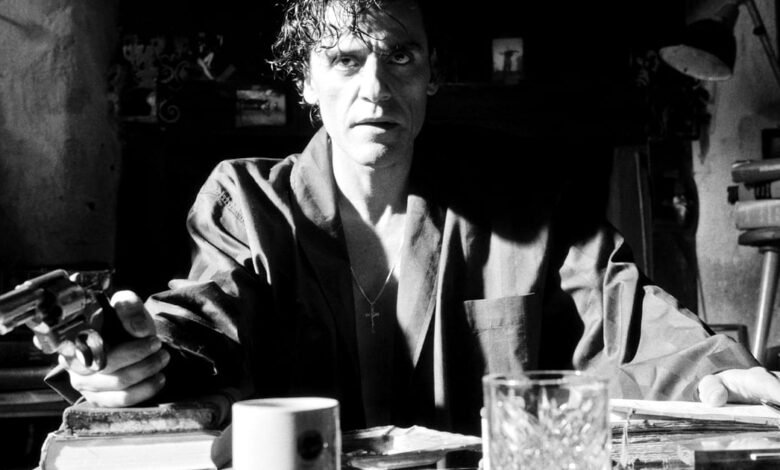

In his narrative poem ‘The Divine Comedy’, accepted to have been written between 1308 and 1321 and widely considered to be the most influential work of Italian literature, Dante Alighieri set out a striking vision of the afterlife which changed literature forever. In Julian Schnabel’s 2025 adaptation of Nick Tosches’ ‘In the Hand of Dante’, inspired by Alighieri’s work, the film director creates the sensation for viewers of being dragged through the various levels of hell across the course of 2.5 turgid hours, riddled with incomprehensible dialogue, baffling accents and some of the most egregious continuity in recent film history.
Perhaps this adaptation was cursed from the start, when Johnny Depp optioned Tosches’ book back in 2008, intending to star in a version realised by Schnabel. He was eventually replaced by Oscar Isaac when the film finally came together in 2023, after Schnabel and Isaac worked together on At Eternity’s Gate. Though it really would have been better for everyone if Isaac hadn’t got dragged into this, given the diabolical quality of the film’s production. Isaac stars in the dual role of Nick Tosches and Dante Alighieri, with the parallel narrative wandering between a black-and-white crime noir (in which Tosches is recruited by a New York gangster to steal the mythical original manuscript for ‘The Divine Comedy’ from the Sicilian mob) and a dingy (but shot in colour) retelling of the book’s creation starring some of the same actors.
Get more Little White Lies
In bad films the charismatic and radiant Isaac usually finds a way to shine, but even he struggles with the incomprehensible script of In The Hand of Dante, unaided by the baffling supporting cast of Gerard Butler, Jason Momoa and Gal Gadot, all of whom seem to think they’re in a completely different film. (Momoa is the most entertaining, because he is the only cast member brave enough to valiantly attempt an Italian accent, and he wears a white suit and pointy hat that make him look like a linen-clad Carmen Sandiego.) Butler chews the scenery – and in one scene a comically large pizza – as a gleefully homophobic, misogynistic hitman with complaints about tiny dogs while Gadot, a real contender for the most wooden actress working in Hollywood today, delivers all her lines as Nick/Dante’s love interest Giulietta/Gemma as if she was only given the script two minutes before the camera started rolling and is workshopping her performance before our eyes. The lack of chemistry between Isaac and Gadot means there’s no reason to invest in this supposedly sweeping love story playing out across 700 years, particularly since there are several leaps in logic required to even believe Nick and Giulietta’s instantaneous infatuation with each other.
Not that In The Hand of Dante strives for any sort of realism. Bafflingly – though not unwelcomely – Martin Scorsese shows up in his best Gandalf outfit as Dante’s wise mentor who lives in a cave and speaks in a form of 1300s ASMR, while bystanders keep getting murdered by Butler’s slur-touting, panty-stealing hitman who seems convinced the law doesn’t give a fuck about the corpses he leaves in his wake. There are other baffling asides – Nick’s mentioned-once-briefly-then-never-again murdered daughter, his pill addiction, a surprising amount of time devoted to explaining the carbon dating process – which speak to the fact that this 388-page book (and Dante’s epic poem) might have proven a little unwieldy as source material.
But Schnabel’s film isn’t even entertaining enough to count as a compelling disaster. The bloated runtime is glacial aside from a few choice action moments which are notable for their am-dram society performances (and the fabulously ludicrous reveal of Gerard Butler playing Pope Boniface VIII) and there’s a sort of cheapness to the costumes and sets which becomes more glaring the longer you look at it. Even the film’s supposed dramatic zenith is hamstrung by Gadot’s atrocious acting and the comically squeaky wheels of the trolley Isaac is strapped to (don’t ask). At least there’s a tagline for the film readily available in Dante’s own work: Lasciate ogne speranza, voi ch’intrate. Abandon all hope, ye who enter here.




